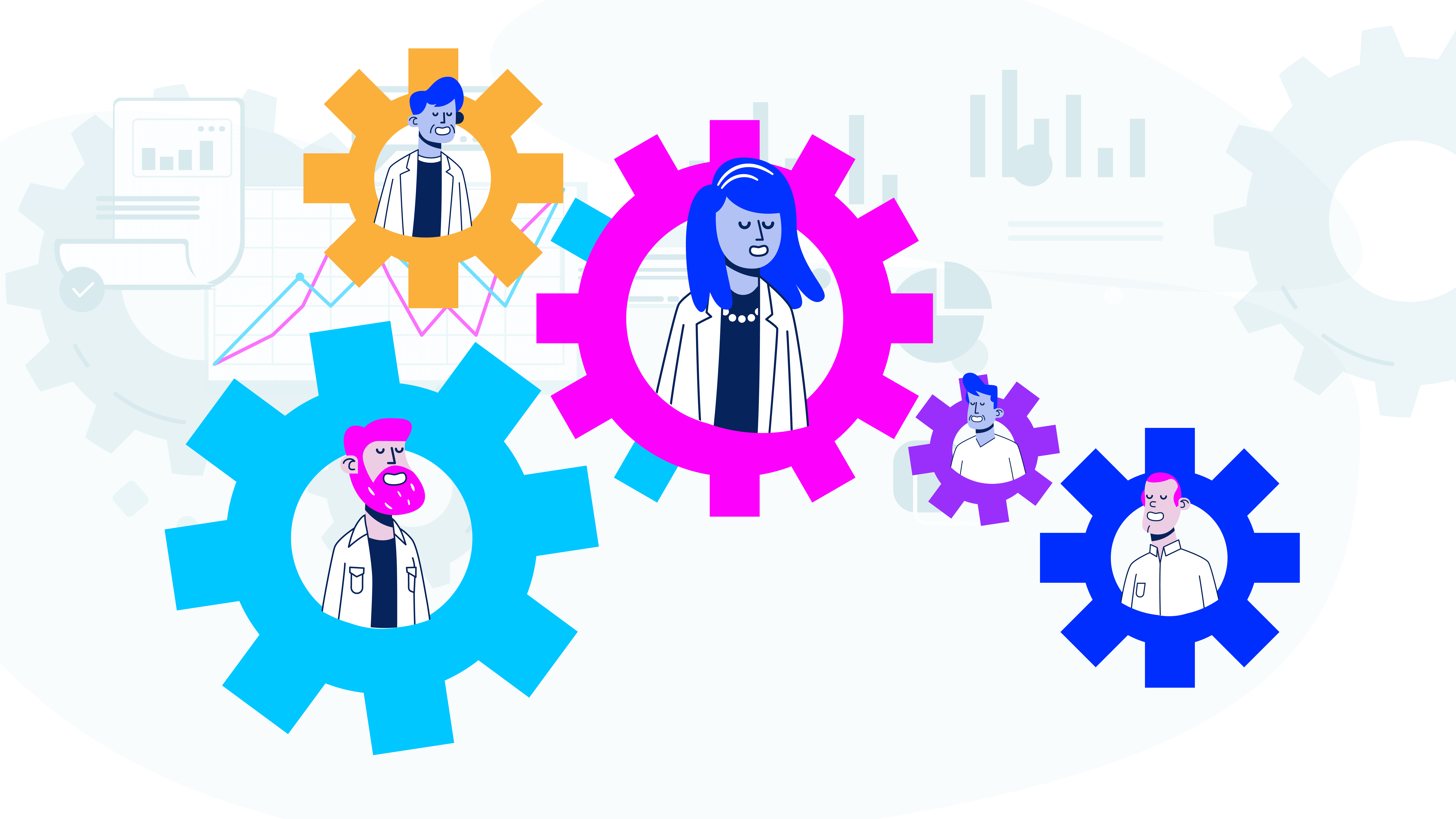
Companies that don’t introduce innovations to their core business eventually turn stagnant. Much worse, companies that are not innovative in their digital business die. So managing digital innovation effectively is critical. It strengthens customer relationships, increases employee productivity, and ultimately keeps the lights on. But delivering continuous digital innovation calls for teams with highly specialized skills.
So finding talent with the best skills is the first step towards building effective teams. But surprisingly few companies have accurate assessments for the hard and soft skills of their in-house digital talent. Even fewer companies can accurately assess the technical skills and cultural fit for contractors.
This inability to accurately evaluate skills for on-demand talent is the root cause of many digital transformation failures. Lack of talent calibration for contractors also makes it impossible to add on-demand resources to teams. But Gigster has over five years’ experience helping companies calibrate skills accurately across thousands of employees, contractors, and freelancers.
In the process, we have found there are three keys to effective talent calibration:
- Trust but verify
- Assess soft as well as hard skills
- Calibrate continuously
Trust but Verify
Self-reported skills are notoriously inaccurate, as anyone who has reviewed LinkedIn resumes can tell you. For example, junior employees tend to overstate their qualifications to get more staffing opportunities. At the same time, senior employees tend to under-report their skills.
For this and many other reasons, skills should be independently verified, based on actual project work. Certifications are useful for verifying basic knowledge, but the only conclusive proof of capabilities is project output. As they often say in racing, “The hot air stops when the green flag drops.”
One of the most powerful tools for measuring technical competence is peer review by trusted individuals who have relevant skills. This is particularly important for pivotal roles like product managers, ML engineers and technical architects.
Assess Soft as well as Hard Skills
Most staffing decisions are made by finding people with the right technical skills who just happen to be available. But more projects fail because of poor team communication than because of poor technical skills. Put another way, a team with OK skills and great communication will always beat a team of anti-social experts. Important soft skills to assess include:
- Helpfulness: Do other team members find that this person makes their own work better (also known as prosocial behavior)
- Creativity: Does this person come up with innovative ideas and, do they help others develop unique approaches to problem solving
- Communication: Is this person effective at getting their ideas across and do they help the team surface issues and resolve conflict effectively?
The challenge has always been that assessing a person’s soft skills is notoriously subjective. We have found that the best way to get a good read on soft skills is to have teams perform regular peer reviews where team leaders rate team members on both hard and soft skills based on their performance over the last 1-2 sprints.
Calibrate Continuously
Many companies assess talent as part of an annual performance review. These reviews provide useful, but incomplete, information. They are more focused on HR compliance and compensation than fine-grained skills assessment. More importantly, they happen so infrequently that they generally only cover the last few months of work. This is why a talent calibration process that constantly updates employee achievements is critical to build and maintain accurate talent assessments.
Data can come from integration with tools like Jira and Github for productivity and quality data. Valuable data can also come from lightweight peer reviews conducted as part of each project retrospective.
Final Thought
Just like a great recipe, a great team starts with understanding your raw ingredients. Staffing managers must understand the specific technical requirements for project success, then map those requirements to each team member. This requires a detailed understanding of your talent:
- What specific technical skills are needed for success in this role? Can these skills be reliably measured?
- What level of technical skill does each team member have? How have those skills been validated (e.g., by peer review or by certification)
- How recently have those skills been used and/or validated? How much brushing up will this person need?
Building innovative software requires a perfectly coordinated effort from teams of people, each with specialized and complementary skills. Getting a good outcome depends largely on finding the right ingredients and adding them to the mix at the right time.
